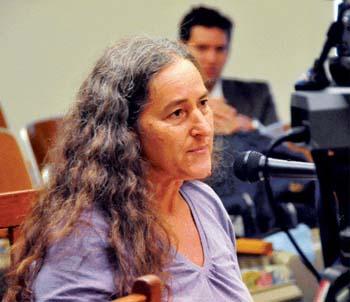LIHU‘E — A controversial update to shoreline setback legislation that coastal advocates have argued should not be undermined took a step toward becoming law Wednesday. But before unanimously passing Bill No. 2319, the Kaua‘i County Council’s Planning Committee approved an
LIHU‘E — A controversial update to shoreline setback legislation that coastal advocates have argued should not be undermined took a step toward becoming law Wednesday.
But before unanimously passing Bill No. 2319, the Kaua‘i County Council’s Planning Committee approved an amendment that removes some of the discretionary powers requested by the county Planning Department and its director, Ian Costa, in an attempt to clarify the bill’s intent and “strike the right balance.”
First-year Councilman Derek Kawakami, who introduced the amendment at the request of Planning Committee Chair Jay Furfaro, said he hopes it can clarify the council’s intent and will “provide the best for the majority” of Kauaians.
In the past, the Planning Department has argued that the bill, if passed, would streamline the permitting process by removing unnecessary procedures for landowners abutting or nearby the shoreline — including the county government — seeking to build certain minor structures.
Opponents, meanwhile, have contended that the update would undermine legislation passed last year and potentially violate state law requiring a certified shoreline for all activities within a certain distance of the ocean.
The amendment — which Councilman Tim Bynum said had been reviewed by University of Hawai‘i’s Sea Grant Coastal Geologist Jim O’Connell, former Councilwoman JoAnn Yukimura and the Office of the County Attorney — “limits the reach” of the Planning Department.
Specifically, the amendment specifies that all new structures or activities shall not: Adversely affect beach processes; artificially fix the shoreline; interfere with public access or public views to and along the shoreline; impede the natural processes and/or movement of the shoreline and/or sand dunes; or alter the grade of the shoreline setback area.
Furthermore, the amendment adds that all new structures “shall be consistent with the purposes of this article and (Hawai‘i Revised Statutes) Chapter 205A.”
Kawakami said such a provision goes without saying because “anything we do has to align itself with state law.”
Coastal advocate Caren Diamond acknowledged in testimony that the changes improve the bill, but warned that “building on the coast is inherently dangerous” and urged the council to uphold state ordinances, not diminish them.
“I don’t know what life would be like without the beaches,” she said.
Deputy County Attorney Ian Jung, who worked on the bill and represents his office regularly at Planning Commission meetings, testified that the certified shoreline is not the legal property “boundary” but instead is the “scientific best guess” that defines a “no-build zone,” and said waiving the requirement in certain cases would not violate the public trust.
The lone voice of opposition on the council was Chair Bill “Kaipo” Asing, an ex-officio (non-voting) member of all council committees, who expressed discomfort with the bill granting “leeway” to county projects while not affording the same opportunity to private landowners.
Furfaro said he would prefer to use the term “financial flexibility” to describe the provision giving Costa the discretion to require — or not require — costly certified shorelines for public improvements and facilities and repairs to private structures. Private improvements and facilities automatically require a shoreline determination.
Furfaro said he believes the public benefit outweighs the “awkward unbalance,” a discrepancy Asing described as a “double standard.”
“Everybody should be under the same guidelines and treatment,” Asing said. “That’s not right.”
Furfaro said he remains “a strong advocate for equal treatment,” and the Planning Department “did not get what they wanted.”
Both the amendment and the underlying bill were approved by unanimous 4-0 votes. Planning Committee member Lani Kawahara and ex-officio member Dickie Chang were absent Wednesday.
Following the meeting, Diamond said the bill, as amended, is “an improvement over what Planning had suggested, but it still needs a little work.”
Asing confirmed following the vote that the bill would be on the agenda for the full council next week.
• Michael Levine, assistant news editor, can be reached at 245-3681 (ext. 252) or mlevine@kauaipubco.com.


